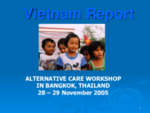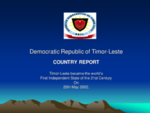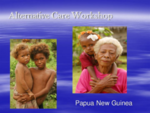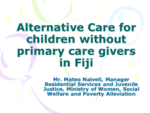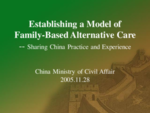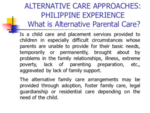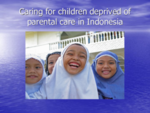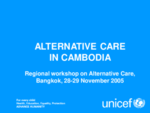Vietnam Report - Alternative Care Workshop
This presentation was given at the Alternative Care Workshop in Bangkok in November 2005. It provides an overview of the situation of children without parental care in Vietnam and the child welfare system in the country, including residential/institutional care.

